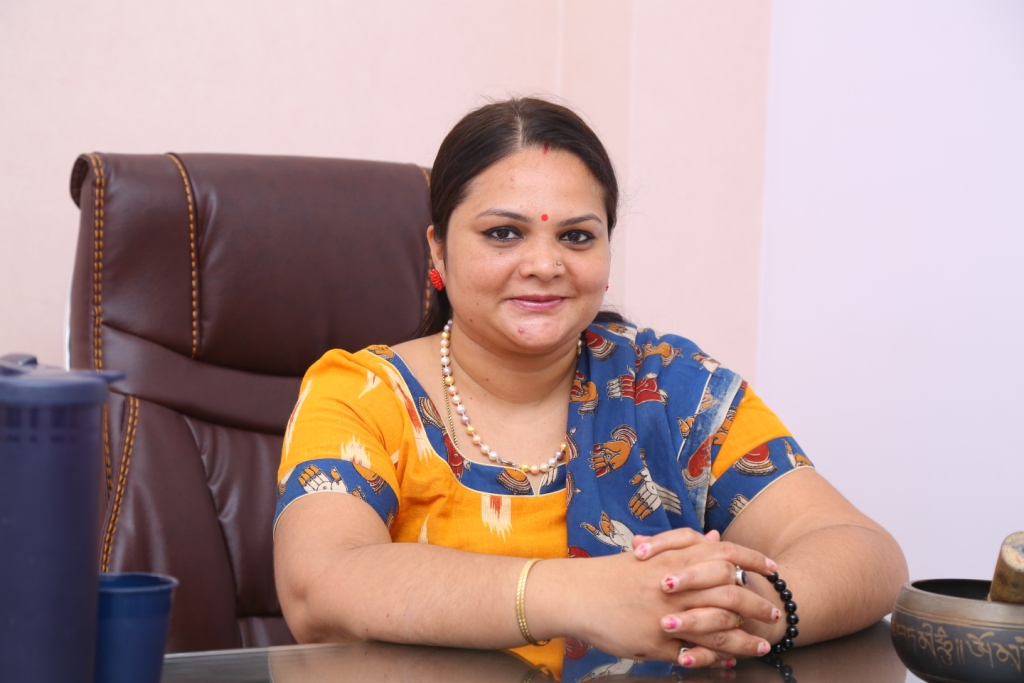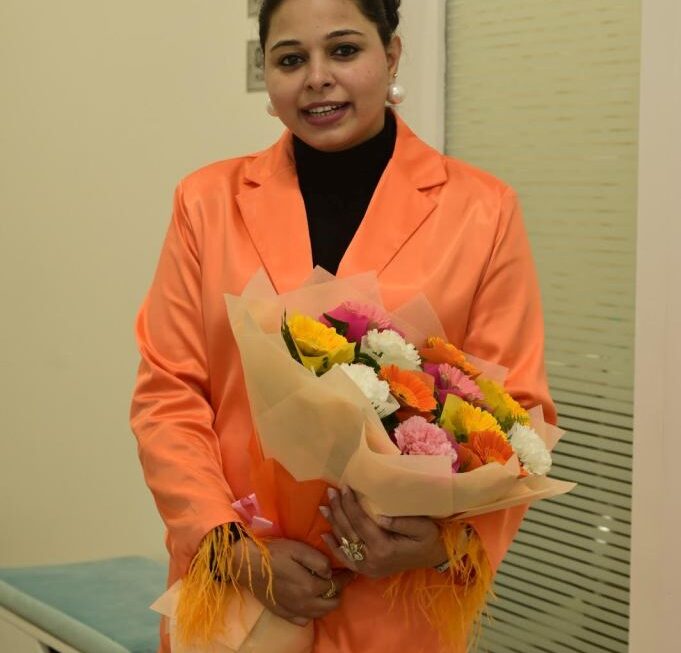WS: Can you share your journey and what inspired you to become a psychologist and found Soul Spa?

PK: My journey into the world of healing and psychology began with the transformative experience of becoming a mother. Struggling with postpartum depression and the overwhelming responsibilities of caregiving, I sought solace and guidance through fitness, meditation, and therapy to navigate this challenging phase of life. It was during this time that I realized the silent suffering experienced by many women due to the lack of non-judgmental listening spaces. Motivated by my own journey of self-healing and recovery, I embarked on a path of continuous learning and growth and founded Soul Spa for mental health.
WS: What led you to specialize in trauma therapy, depression in mental space, and stress management?
PK: I always believed in lifelong learning and recognizing the pervasive presence of stress, trauma, and depression in today’s fast-paced and hectic lifestyles, I took up some courses to especially help those in depression and carrying long standing trauma.
WS: How do you integrate the concept of body-mind-soul connection into your therapy sessions?
PK: The name Soul Spa reflects the core belief that a lack of soul energy or disconnection from one’s true self can manifest as physical, mental, and emotional ailments. At Soul Spa, I provide personalized therapy to clients utilizing a variety of tools and techniques including mandala art, movement, dance, NLP, energy healing, and Mental Space Psychology. Understanding the intrinsic connection between physical health, diet, and mental well-being, I emphasize the importance of holistic approaches to healing, acknowledging the psychosomatic nature of many chronic lifestyle disorders.
WS: As a fitness enthusiast, how do you believe physical health contributes to mental well-being?
PK: Physical health and Mental Health are deeply associated, what happens in the mind creates a ripple effect on the body and vice versa. Movement in any form, yoga, dance walk releases some happy hormones and thus the ‘feel good’ experience. It’s a beautiful synergy which nature has intricately designed.

WS: Can you explain the role that energy plays in your work and how it complements traditional therapy methods?
PK: Central to my therapeutic approach is the recognition of the interconnectedness of energy within the universe. By aligning our energy with that of the universe, we can access its abundance and facilitate healing on all levels. By integrating energy healing at a metaphysical level with the traditional therapy tools, faster and accelerated healing is observed.
WS: What are some common misconceptions about mental health, and how do you address them in your work?
PK: Despite the strides made in mental health awareness, stigmas persist, with misconceptions about therapy and those who seek it still prevalent. The biggest misconception about mental health is that people with mental health challenges have low IQ, a common person can never have mental health challenges. Truth is that mental health issues are as common as cough, cold and fever.
WS: Could you share some memorable success stories from your sessions?
PK: My work has yielded numerous success stories, including that of a young woman who experienced significant improvement in her chronic kidney disorder (psychosomatic disorder) after just one year of therapy. I have helped numerous women overcome postpartum depression, and very recently I remember a 35-year-old housewife hugging me at the end of the therapy, for the relief she experienced.
WS: How do you stay updated with the latest developments in psychology and therapy techniques?
PK: Continual learning and self-improvement are integral to my practice, as I actively engage with peers and pursue new learning opportunities, such as cellular healing, to enhance my skills and better serve my clients.

WS: What advice would you give to someone struggling with mental health issues but hesitant to seek help?
PK: Journalling, writing it out, as if addressing self-works wonders, for the vulnerable introverts who cannot open to other people. Venting out of the emotions, with journaling, story writing, mandala art, dance, music is very important.
WS: With the increasing awareness about mental health, what changes do you foresee in the field in the coming years?
PK: As mental health issues continue to rise, especially in the wake of the pandemic, the demand for mental health clinics and therapists is expected to increase significantly. Early recognition of the problem and easy access to help, adopting preventive measures in school, colleges, corporates, organizations is expected to be the new normal.
WS: How do you balance your roles as a psychologist, founder of Soul Spa, fitness enthusiast, and energy healer?
PK: Maintaining balance amidst the demands of work and personal life is crucial, and I prioritize self-care through daily rituals such as gratitude journaling, yoga, meditation, and breathing exercises. Spending quality time with my family, taking solo trips, connecting to nature are my ultimate soul rejuvenators.
WS: Lastly, what kind of legacy do you want to leave behind from your work promoting wellness and mental health?
PK: Ultimately, my goal is to contribute to the normalization of mental health care, shifting perceptions so that seeking therapy is viewed as a natural and essential aspect of self-care, akin to treating physical ailments. By fostering an environment of openness, acceptance, and confidentiality, I hope to leave behind a legacy that promotes mental well-being as an integral part of overall health and wellness.
-Team WS







